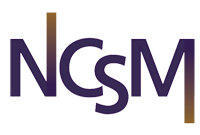Coaching Corner
The nine essential actions for mathematics coaching and coaching programs as identified in the NCSM Essential Action series: Coaching in Mathematics Education (2018) are shown below. Select each action to explore tools, videos, and books designed to support and strengthen mathematics coaching practices and programs.
Nine Essential Coaching Actions
Demonstrate a Commitment to Coaching
- Develop foundational elements (vision, beliefs)
- Create coaching programs
- Clarify the purpose of a math coach
- Develop commitments to coaching through roles and responsibilities
Essential Coaching Action 1 is to demonstrate a committment to coaching, including time and resources. The action includes creating effective structures for coaching. District leaders, principals, coaches and teachers build a shared understanding of their purpose for the mathematics coaching program and how they will collectively support the model.
Apply the Equitable Learning Principles to Adult Learners and Model Them During All Coaching Interactions
- Understand and employ the principles of adult learning
- Model equity and move toward vision through coaching
Essential Coaching Action 2 is to apply principles of learning to adults and model them during all coaching interactions. It is essential for coaches to understand how adults learn using prinicples of learning (see pages 47 – 50 in NCSM Coaching in Mathematics Education book from the Essential Action series), plan time to review them and periodically revist and reflect upon them.
Understand and Use a Variety of Coaching Interactions to Improve Teaching and Learning
- Understand the continuum of coaching functions
- Clarify coaching individuals versus coaching teams
- Understand coaching cycles and strategies for each part of the cycle
Essential Coaching Action 3 is to understand and use a variety of coaching interactions to improve teaching and learning. Coaches interact with teachers in multiple ways to support both individuals and teams to impact student learning and develop confident and strong mathematics students. Coaches need to understand the different coaching roles and when to employ each one.
Provide and Engage in Relevant and Ongoing Professional Learning
- Plan for effective mathematics professional learning
- Develop a culture of ongoing professional learning
Essential Coaching Action 4 is to provide and engage in relevant and ongoing professional learning. In order to ensure sustainability, it is essential to provide and engage mathematics teachers and mathematics coaches in relevant, ongoing professional learning.
Support the Gathering and Use of Data to Inform Continuous Improvement
- Clarify data needed for ensuring continuous improvement
- Gather data about mathematics coaching
- Use data for goal setting, coaching, and analysis of instruction and student learning
Essential Coaching Action 5 is to support the collection and use of data to inform continuous improvement. Effective use of data is at the core of any continuous improvement process. Coaches play a critical role in modeling how to use data to inform instructional decisions and program improvements through the use of plan, do, study, and act cycles.
Know, Understand, and Do Mathematics
- Build mathematics content knowledge
- Grow strategies for incorporating mathematics process standards in lessons
Essential Coaching Action 6 is to know, understand, and do mathematics. Coaching will focus on the mathematics content all teachers must know deeply in order to teach a grade level or course.
Know, Understand, and Implement Effective Mathematics Teaching and Learning
- Develop a quality lesson planning process
- Build capacity for effective instructional strategies and task implementation
- Grow pedagological content knowledge
Essential Coaching Action 7 is to know, understand, and implement effective mathematics teaching and learning. Coaches work with teachers and teams to faciliate the design of standards-based lessons which include specific learning outcomes, cognitively demanding tasks, engaging mathematical experiences and aligned assessments. Coaching focuses on improving lesson design and implementation of the lesson to increase student’s mathematical competency.
Develop and Foster Curriculum Coherence
- Develop coherence in mathematics curriculum
- Utilize learning progressions
- Close the gap between the intended, implemented and attained curriculum
Essential Coaching Action 8 is to develop and foster curriculum coherence. Coaching will focus on mathematics curriculum used by teachers in their classrooms. This can include developing an understaning of the curriculum materials, connections within and among grade level materials, and how big ideas of mathematics might sequence and connect.
Develop and Use Evidence of Student Learning to Inform Instructional Decisions
- Respond to mistakes and misconceptions during instruction
- Implement formative strategies
- Plan for differentiated instruction
- Develop strong classroom management
Essential Coaching Action 9 is to develop and use evidence of student learning to inform instructional decisions. Coaches support teachers and teams to develop specific skills during instruction which use evidence of student learning to plan next steps during instruction. Skills include the strategic use of formative assessments, differentiation and classroom management structures.
